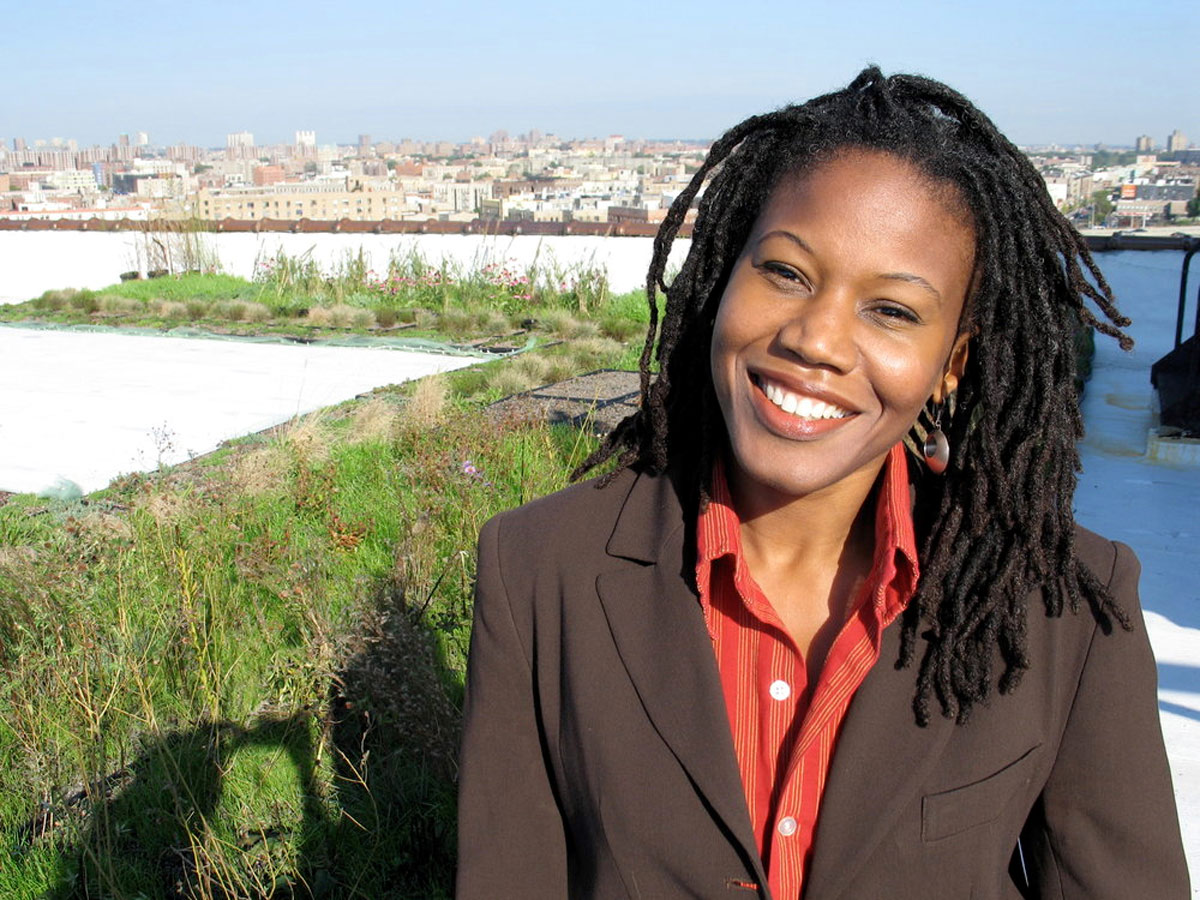SEATTLE
Green Infrastructure Summit

Accelerate [ak-sel-uh-reyt] verb. Accelerated, accelerating.
1) To cause faster or greater activity, development, progress, advancement, etc., in:
2) To hasten the occurrence of:
You may expect to see this word for a car show or some sort of mechanics’ symposium. But it was the theme for the second annual Green Infrastructure Summit by City Habitats hosted in Seattle.
The day was all about bringing together diverse leaders and learners in order to accelerate action by using the resourcefulness of nature to address Puget Sound’s biggest water-pollution problem: stormwater. Great minds from .coms, .edus, .govs and .orgs gathered at the Mountaineers Club to gain inspiration and share knowledge on scaling up efforts — beyond a cute little street, an isolated rain garden or a few trees — to truly address stormwater at the pace and scale we need.
Attendees had their engines revved right away by Majora Carter’s inspiring keynote. Carter is a fighter who wouldn’t take no for an answer when it came to bringing green space into her South Bronx neighborhood in the early aughts, and she’s been on a revitalization spree ever since.

Majora Carter, the keynote speaker at the Green Infrastructure Summit
Photograph courtesy of Majora Carter Flickr
Think Global, Act Local
Nancy Rottle of the University of Washington’s Green Futures Research and Design Lab took us on a global tour of green-infrastructure possibilities, such as Gardens by the Bay in Singapore, to help us dream big. John Stark from Washington State University’s Washington Stormwater Center shared the most up-to-date research on polluted runoff’s impacts to salmon right in our own neighborhood.
Actions and Outcomes
Drawing on the strengths of the City Habitats community, we were able to learn about almost 20 different green-infrastructure case studies from here in Puget Sound from the salmon-safe Sea-Tac Airport to DIRT Corps’ careers program, the Point Defiance project and so many others. By focusing on actions and outcomes, rather than just planning and process, we accelerate innovative solutions and learn from one another.
Building Efficiency
To take on an issue so large as stormwater pollution in Puget Sound and reimagine a future with healthy, thriving communities, we need to be sure we are working smarter, not harder. The summit sought to build efficiency by honing in on two areas:
- Moving beyond code: “Beyond code” refers to private development and investors going above and beyond current regulations they are required to abide by in order to apply more nature-based solutions to reducing polluted runoff. The business community is catching on to how this positively impacts its bottom line, while nature and the surrounding community reaps the benefits as well.
- Innovative decision-making tools: The City Habitats community isn’t just haphazardly splashing Puget Sound’s urban areas with green. It takes a level of strategy to decide where green infrastructure makes the most sense. GIS (geographic information systems) mapping can show us everything from how water flows through our city to tree-canopy density to socioeconomic divides. These various aspects are important to consider to break the divide between nature and cities so that we all can flourish. Using the latest technology and analytics to make the right decisions is key.

Photograph provided by City Habitats
By the end of the day, there was an accelerated level of energy in the room, which was certainly a surprise considering the intensity of the summit. One might expect to see exhaustion — instead, the enthusiasm and eagerness to go out, collaborate, get inclusive and take action could really be felt.
For us, acceleration isn’t just about doing things more quickly. It’s about deliberately working with the resourcefulness of nature itself, creating our habitats that clean air and water while they accommodate growth, benefit underserved communities, promote physical and mental health and foster social cohesion and economic competitiveness. Yes, all that.
Subscribe to our e-mail list.
Stay up-to-date on how we are building a movement around nature in cities - including the latest stories from the blog and upcoming events.
© Kevin Arnold
